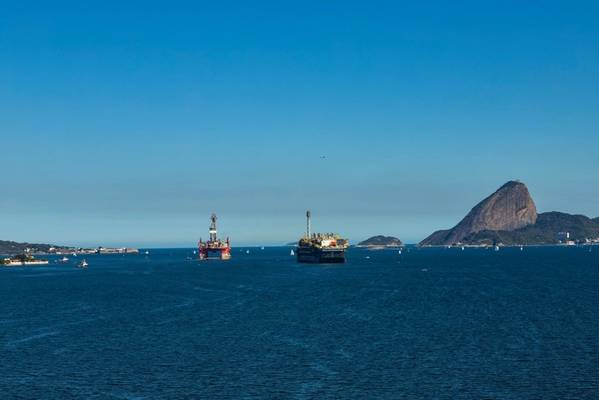
U.S. government officials in March asked Brazil's state-run oil company Petrobras whether it could increase crude output after Russia's invasion of Ukraine sent global prices soaring, three people with knowledge of the matter told Reuters. They came away empty-handed, the sources said.
Officials at Petrobras, formally Petroleo Brasileiro, said output levels were a function of business strategy rather than diplomacy and also that a significant short-term production boost would not be logistically possible, the sources said.
"We are ... doing everything possible with our allies and partners to mitigate the economic impacts of Russian actions on other economies like Brazil," a U.S. State Department spokesperson said in a statement to Reuters. "We are working with energy companies to surge their capacity to supply energy to the market, particularly as prices increase."
The spokesperson did not elaborate or comment specifically on the March meeting with Petrobras officials.
Petrobras denied in a statement that any meeting had occurred with "representatives of the U.S. State Department." It did not respond to a request for comment when asked if it had been contacted by any other U.S. government agency.
Washington has been making a sweeping diplomatic push to secure global oil supplies and keep a lid on prices after Moscow's invasion of Ukraine. U.S. officials also have been trying to improve relations with the right-wing government of President Jair Bolsonaro, despite disagreements over the Ukraine war and environmental policy.
Brazil is the world's ninth-largest oil producer.
U.S. officials have also called on domestic producers to boost output. In March, U.S. Energy Secretary Jennifer Granholm said the country was on "war footing."
Also in March, U.S. officials traveled to Venezuela for their first high-level bilateral talks in years. The sides discussed the easing of some oil sanctions on Venezuela.
Brazil Mines and Energy Minister Bento Albuquerque told Reuters in April that he had met with Granholm twice to discuss the South American nation's role in keeping a lid on global crude prices. Few details of the government-to-government talks have emerged previously.
During a March meeting, U.S. officials asked Petrobras if the company had the capacity to increase short-term production, according to U.S. government and Petrobras sources, who requested anonymity to discuss private talks.
One of the sources said that initial contacts were made between the U.S. and Brazilian governments, and Petrobras officials were consulted in an "informal" follow-up meeting.
The Petrobras officials responded that such a move was not on the table due to strategic goals and logistical obstacles, all three sources said.
Those officials added, however, that Petrobras was ramping up medium-term production as part of an announced plan to add 500,000 barrels per day of crude production by 2026.
Petrobras executives insist it operates independently of the government, but the state is by far its biggest shareholder.
($1 = 5.08 reais)
(Reuters - Reporting by Gabriel Stargardter, Gram Slattery and Rodrigo Viga Gaier - Editing by Brad Haynes and David Gregorio)